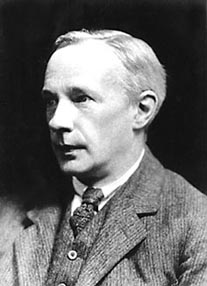G.E. Moore (1873-1958) | Issue 160

Your complimentary articles
You’ve read one of your four complimentary articles for this month.
You can read four articles free per month. To have complete access to the thousands of philosophy articles on this site, please
Philosophical Haiku
by Terence Green
Such obscurity:
Needless confusion contrived.
Analyse the truth!

George Edward Moore is rare among philosophers, because for the life of him he couldn’t understand why other philosophers made everything so complicated. His approach to philosophy, proceeding on the basis that things don’t need to be complicated, was so radical that Moore was considered revolutionary – or alternatively, was dismissed as a naïve simpleton posing as a philosopher.
Early twentieth century English-speaking philosophy was dominated by thinkers who said that ordinary language was hopelessly inadequate to the task of ascertaining absolute truths – what was needed was some arcane, abstruse, recondite, incomprehensible idealist investigation, which alone would reveal to us the timeless verities we seek. George’s response was to pen ‘A Defence of Common Sense’ (1925). Feeling compelled to point out the obvious by his colleagues’ dim-wittery, he noted that there was in fact a vast body of beliefs about the world which we can express in perfectly clear and ordinary language, and which are quite obviously true.
At this, Western philosophy took a sharp collective intake of breath: “What a simpleton!” it cried. But, said Moore, unperturbed, take for instance a statement like “There exists at present a living human body, which is my body.” Now, even the most deliberately unfathomable philosopher would concede that that is obviously true – it would be the height of rudeness to sit down with Moore and argue that he didn’t have a body. So the real problem for philosophy, Moore continued, was not with language and meaning – most of the time, most of us know what most of us mean – the problem is with analysis. Again, a sharp collective philosophical intake of breath: “Analysis? What does that mean?” Unfortunately, Moore wasn’t sure what it meant.
Oh well, at least he was sure he had a body.
© Terence Green 2024
Terence Green is a writer, historian, and lecturer who lives in Eastbourne, New Zealand.
Advertisement


